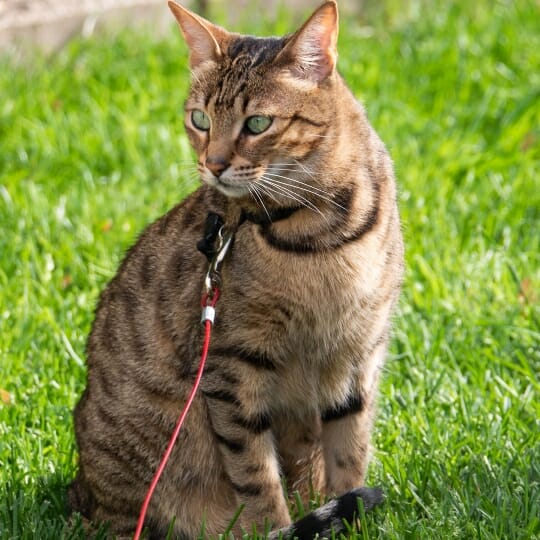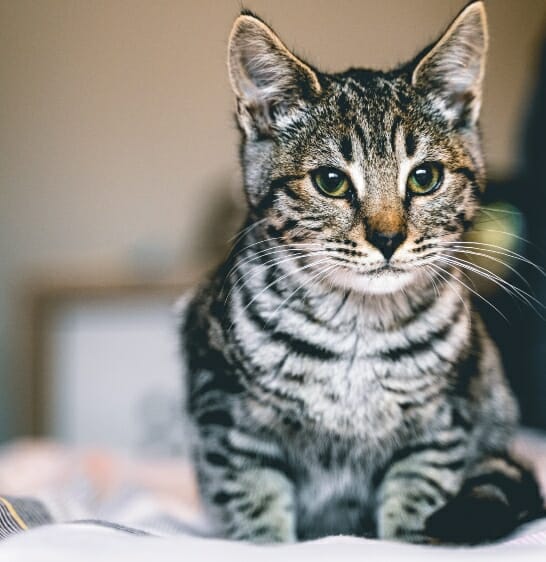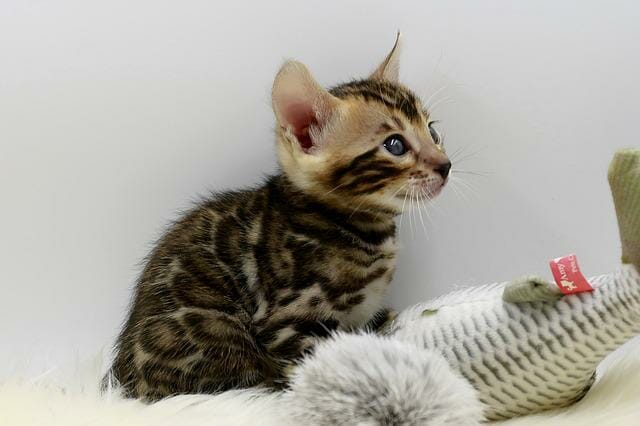How Much Is a Savannah Cat: Cost of Owning a Savannah Cat
On average, the price of a Savannah cat can range from $1,500 to $20,000 or more. F1 Savannah cats, the first generation offspring of a serval and a domestic cat, are usually the most expensive and can cost upwards of $10,000 or more. As the generation of the cat increases, the price usually decreases, with F2 and F3 Savannahs typically costing less.
Table of Contents
Monthly Cost of Owning Savannah Cat


Food
Feeding your cat a healthy and balanced diet is essential to their health and well-being. Savannah cats require a diet high in protein and nutrients to support their active lifestyle and unique nutritional needs. Look for cat food high in protein and low in carbohydrates, with quality ingredients such as whole meats, vegetables, and fruits. Avoid cat food that contains by-products, fillers, or artificial preservatives.
Some Savannah cat owners feed their cats a raw diet of uncooked meat, bones, and organs. Raw food diets can provide the necessary nutrients and protein for your cat’s active lifestyle, but it is essential to consult your veterinarian and follow proper food safety guidelines.
Savannah cats have a high metabolism and require frequent meals throughout the day. Consider feeding your cat three to four small meals daily rather than one or two large meals. Ensure your cat has access to clean, fresh water at all times. Consider using a water fountain to encourage your cat to drink more water. Many human foods can be harmful or toxic to cats, so it is best to avoid feeding your cat table scraps or human food.
Litter and Litter Box
Savannah cats have a sensitive respiratory system, so it is best to choose a low-dust litter to reduce the amount of dust and debris in the air. Some good options include low-dust clay litter, recycled paper litter, or wood pellets for cat litter.. They are known for their playful and curious nature and may enjoy playing in the litter box or kicking litter outside the box. A covered litter box can help contain litter and reduce mess.
Providing your Savannah cat with multiple litter boxes throughout your home can help prevent accidents and reduce stress. As a general rule, provide one litter box per cat plus one extra. Regularly scooping out solid waste and clumps of litter can help keep the litter box clean and reduce odor. It is also important to completely replace the litter and clean the litter box regularly.
Litter box liners can make cleaning the litter box easier and reduce mess, while deodorizers can help reduce odor. However, choosing liners and deodorizers that are safe for your cat and avoiding any with strong fragrances that may irritate your cat’s respiratory system is important.
Veterinary Care
Regular veterinary care is essential to maintaining the health and well-being of your Savannah cat. Schedule regular check-ups with your veterinarian to ensure your Savannah cat is healthy and up-to-date on vaccinations and preventative care. Your veterinarian can also detect and treat any health problems early on.
Watch for signs of illness, such as changes in appetite or behavior, vomiting, diarrhea, or lethargy. If you notice any concerning symptoms, contact your veterinarian right away. Ensure your Savannah cat is up-to-date on vaccinations and preventative care, including rabies and feline distemper.


Spaying or neutering your cat can help prevent health problems and reduce the risk of certain cancers. Follow your veterinarian’s recommendations for your cat’s nutrition, exercise, and preventative care. This can help keep your cat healthy and prevent future health problems.
Toys and Scratching Post
Providing your Savannah cat with appropriate toys and scratching posts is important to keep them mentally and physically stimulated, prevent destructive behavior, and promote healthy scratching habits.
Savannah cats are active and curious by nature, so toys that encourage play and exercise can help keep them mentally and physically stimulated. For example, choose toys that mimic natural behaviors such as hunting, chasing, and pouncing, such as interactive toys, feather wands, or catnip toys.
Savannah cats have a natural urge to scratch, so providing them with a scratching post can help prevent them from damaging furniture or other items in your home. Choose a sturdy scratching post tall enough for your cat to fully stretch out and made of a material you like to scratch, such as sisal, cardboard, or carpet.
Rotate your cat’s toys regularly to keep them engaged and prevent boredom. This can also help prevent destructive behavior and keep your cat mentally stimulated. Puzzle feeders can provide mental stimulation and help prevent boredom by making your cat work for their food. In addition, various puzzle feeders are available, such as treat balls or interactive feeders.
Grooming
Regular grooming is important to keep your Savannah cat’s coat healthy and matting-free, prevent hairballs, and promote good hygiene. Here are some tips on grooming your Savannah cat:
- Brush your cat’s coat regularly: Savannah cats have short, dense coats that require regular brushing to remove loose hair and prevent matting. Use a soft bristle brush or a rubber grooming glove to gently brush your cat’s coat once or twice a week.
- Bathe your cat as needed: Savannah cats do not typically require frequent bathing, but if your cat gets dirty or smelly, you may need to bathe them. Use a gentle, cat-specific shampoo and rinse thoroughly. Be sure to dry your cat thoroughly after bathing to prevent chilling.
- Trim your cat’s nails: Trim your cat’s nails regularly to prevent them from becoming too long and causing discomfort or damage to furniture. Use cat-specific nail clippers, and do not cut the quick (the pink area inside the nail that contains blood vessels).
- Clean your cat’s ears: Use a cotton ball or soft cloth to clean your cat’s ears once a week gently. Avoid using cotton swabs, which can push debris further into the ear canal.
- Brush your cat’s teeth: Brush your cat’s teeth regularly to prevent dental problems and bad breath. Use a cat-specific toothbrush and toothpaste, and introduce brushing gradually.
Factors Affecting the Cost of a Savannah Cat


- Generation: Savannah cats are categorized into different generations, according to WebMD. They range from F1 (first generation) to F7 (seventh generation). F1 Savannah cats are the most expensive because they are the closest to the African Serval and have the most distinctive and wild-looking features. As the generations move further away from the Serval, the cats become less expensive.
- Breeder reputation: The breeder’s reputation can also affect the cost of a Savannah cat. A reputable breeder who produces healthy, well-socialized cats may charge more than a breeder with a less established reputation.
- Gender: Male Savannah cats are typically greater, more in demand, and may be more expensive than females.
- Coat color and pattern: Savannah cats can come in various coat colors and patterns, and some colors and patterns may be more desirable than others, which can affect the price.
- Age: Older Savannah cats may be less expensive than kittens, as they are no longer in high demand.
- Location: The cost of a Savannah cat may also vary depending on your location. Prices may be higher in areas with fewer breeders or Savannah cats in high demand.
- Shipping: If you are purchasing a Savannah cat from a breeder in another location, you will also need to factor in the shipping cost, which can be expensive.
